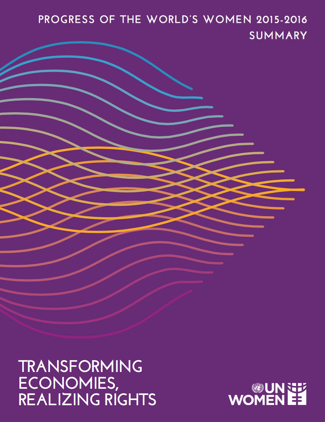No economic policy is gender-neutral. The first time I heard that, at the London School of Economics, it came as a complete shock to me—the kind of eye-opener you only get when something so obviously true is pointed out to you for the first time. All policies, whether economic or social, have differing impacts on women and men, but economic policy has historically been gender-blind.
Since the early 1970s, many economists have focused on showing how these faulty assumptions play out: Ester Boserup’s work showing that women’s contribution to the agricultural economy in Africa was not being captured in the data and therefore not taken into account in economic growth measurements, for example; or Naila Kabeer and Amartya Sen’s deconstruction of the neoclassical economic model and its failure to account for gender power dynamics within the household in “rational choice theory.” Gender discrimination is firmly entrenched in the economic models used by national governments and international organizations—in both the theory and the practice of international development.
The report also invites us to stop making an artificial distinction between the aims of macroeconomic and social policies. Rather than assuming that the latter’s objective is to moderate the undesired effects of the former, the authors propose that macroeconomic policies themselves can and should be a tool to pursue gender equality and social justice.
Finally, the report tackles head-on a central myth about women’s economic empowerment: that getting more women into the workforce will solve a host of ills. Just having a job isn’t enough, and making the transition from informal to formal jobs can sometimes be disempowering. Globally, women earn 24 percent less than men, yet they do almost two and a half times more unpaid care and domestic work than men. And when you combine unpaid and paid work, women clearly work longer hours. A formal, paid job that doesn’t offer flexible hours or childcare is less compatible with women’s overburdened lives. A job in the informal economy, even underpaid and without social protection, is often a far more “rational” choice.
So how can macroeconomic policies address gender inequalities and provide women with the opportunity to choose their own empowering pathway? For starters, by capturing their work in the data; only 41 countries are actually doing that today. Projects such as Data2x and some of the other organizations we support with grants are doing great work to narrow this data gap, but there’s still a lot to be done. The work that women perform, particularly those employed in the informal economy, is simply not adequately measured, contributing to the collective misapprehension that women are not economic agents.
The Progress on the World’s Women Report 2015 makes the case that these inequalities are reinforced through economic and social policies, a whole system in need of profound reform. UNWomen proposes 10 policy actions, which require support from a host of actors including governments, civil society, the private sector, and international financial institutions. What we need from them is nothing short of a economic revolution—a gendered revolution—one with policies that not only take into account the work that women are already performing, but that also reimagine the conditions under which women are incorporated into development models. What we need are economic policies that can help make visible—and valuable—the work that women perform, and provide real choices so that women can be truly empowered.



